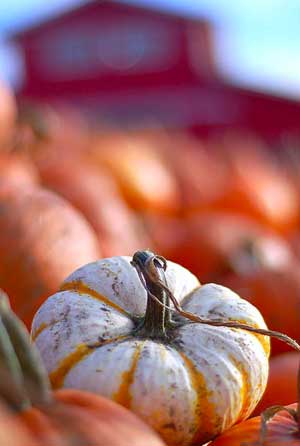
When we opened the doors of the first Land Commission office in 1973, there was a green carpet, a dozen telephones, hundreds of maps -- and little else.
Over the next 18 months, the five-member commission and a small staff oversaw the establishment of the original Agricultural Land Reserve (ALR) boundaries -- based on the best science available related to the soil/climate capability of the land to produce a range of agricultural crops.
It was an inclusive process. Over 300 public meetings were held throughout the province and each of the 28 regional districts submitted their own draft ALR plans.
A general manager who was a professional agrologist and commissioners who were well respected in their fields of expertise ensured ALR boundaries reflected both the provincial perspective and regional agricultural differences.
From the outset, it was recognized we also needed to protect the integrity of farm communities. That is why small pockets of non-agricultural land -- whose development could negatively affect farming -- were included within the ALR.
So began what remains -- at least until now -- the most successful agricultural land preservation program in North America.
It has not been a smooth ride. ALR boundary reviews began almost immediately, and continue, often in cooperation with local and regional governments. Subdivision, non-farm use and exclusion applications came pouring in, each of which has been decided on its own merits. From time to time, successive provincial governments have interfered with the independent Agricultural Land Commission.
In recent years, however, the ALC has reset its course, and in response to government direction and an auditor general's report, has modernized and demonstrated creative flexibility within its primary mandate to preserve farmland.
Into this environment, government has now thrown Bill 24, which puts this 40-year success story at risk.
More equal than others?
The proposed two ALR zone concept offends the principles of fairness and consistency. Where is the consistency in awarding some B.C. farmers more ALR protection than others? Moreover, with relaxed criteria in Zone 2, why would hundreds of landowners who have had their applications refused -- and had to accept that -- not now come back for reconsideration?
How does eliminating a provincial commission in favour of six regional panels meet government's own test of 'effective and efficient'? The provincial ALR was established precisely because regional authorities could not be relied upon to effectively protect farmland from non-farm development. Operating six panels will surely be less efficient and more costly than funding one provincial commission.
Yes, farmers have a legitimate complaint. The farmer support systems that were put in place as part of the social contract to preserve the land have long since been eliminated. This same government that has introduced Bill 24 has also cut the budget of the Ministry of Agriculture to be amongst the lowest per capita in Canada.
By definition, 'zoning' restricts individual action for the greater common good. The last thing most dedicated farmers want to do is sacrifice the land that is the source of their livelihood. It is therefore not surprising that traditionally, only about five per cent of ALC applications have come from farmers.
Unlike other kinds of zoning, the ALR was always envisioned as a permanent zone, not a zone of convenience. Its vision is long-term -- to keep the options open for future food production. Eighty-five percent of our best agricultural lands occur within the proposed Zone 2 where they will be less protected.
True goal seems to be chaos
Bill 24 is shortsighted and irresponsible. British Columbians made a courageous decision in 1973. Now more than ever, with population growth, loss of farmlands elsewhere, increased transportation costs and the urgent challenge of climate change, we need to stay the course.
Thus far, government has offered no core review analysis that demonstrates the ALR is broken and no credible explanation of how Bill 24 will fix what is perceived to be broken.
From government's own statements, it is clear they do not understand the scientific basis of the ALR and they have not done their homework on potential negative impacts of their actions upon farmers and farm communities. They should pull back Bill 24 and rethink.
If they do not, the only conclusion one can reach is that far from supporting farming in B.C., Bill 24 is a deliberate attempt to reduce the ALR to chaos.
In that case, British Columbians, who have consistently expressed their understanding and clear support for the ALR, need to sit up and take notice. ![]()
Read more: Food, Environment














Tyee Commenting Guidelines
Comments that violate guidelines risk being deleted, and violations may result in a temporary or permanent user ban. Maintain the spirit of good conversation to stay in the discussion.
*Please note The Tyee is not a forum for spreading misinformation about COVID-19, denying its existence or minimizing its risk to public health.
Do:
Do not: